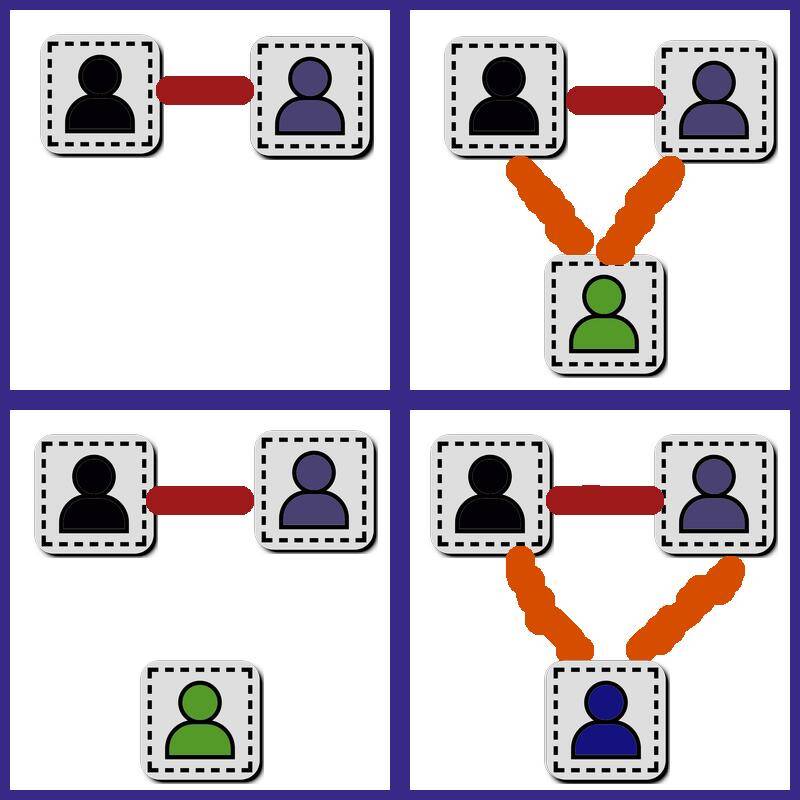When talking about boundaries, I often say that the intent isn’t the issue. To the extent that you can’t judge someone for their boundaries, price of admission, or whether or not they’re willing to pay it.
This was not always the case. I used to focus almost entirely on intent instead of outcome or behavior. That can get really difficult when you’re dealing with, say, someone showing narcissistic behaviors, or a habitual liar, or abuser. So I’ve spent a lot more time lately thinking about focusing on an almost transactional approach. "That’s your price of admission; it’s too much for me; oh well." "You aren’t able to provide the deliverables on time; I need them on time; guess I need a new contractor." The why doesn’t matter there – it’s a simple algebra.
But intent does matter. Mostly when looking at yourself and your motivation.
There’s a really clear – and frequently argued – example of this in the polyamorous community. It’s "unicorn hunting". [1]
The very short form is that "unicorn hunting" is when an established couple looks for a third partner to be involved in a relationship with both people in the couple. It is almost universally reviled among polyamorous communities.
"But wait!" says the convenient imaginary person. "Haven’t you been in relationships where all three people were dating each other? Where do you get off criticizing people who want the same thing?"
And that "hypothetical" question is why it’s a pretty clear example of where intent matters. [2]
Because when I’ve ended up in a triad, nobody involved was actively looking for it. Just like "regular" dating, someone ran into a person they liked. The new person got introduced to other partner(s), and they hit it off on their own.
It’s easier to illustrate:

Purple and Black happen to be in a relationship, top left. Black meets Green, and they start dating, top right. Purple is introduced to Green, and they also hit it off, bottom left. Black never told Green that they had to start dating Purple – or vice versa.
That’s a good start, but the bottom right panel is key: There is no presumption of what happens afterward. Maybe Black and Green have a falling out. Maybe Purple and Black. Maybe Green meets some other people and starts dating them separately from Black and Purple. Sometimes people prefer a closed triad relationship structure, and there’s nothing wrong with that, as long as the intent is that the relationships occur naturally.
Contrast that with this (real) personal ad text, only slightly anonymized:
looking for our other half
Established loving 31m/18f family orientated. Were looking for a 18 to 30yo female who wants to be a part of our family and learn and grow with us. Spelling and grammar errors are 100% from the ad.
This is an ad for a role, not a person. Implied are the requirements that (somehow, sight unseen) this young woman should be equally attracted to both the 31 year old man and 18 year old woman [3]. They are not looking to develop their own individual relationships with someone, they want to subsume a young woman into their existing relationship.


[2] I’ve actually had that question asked, so, not so hypothetical.
[3] While such an age difference is not inherently creepy – I’ve dated people of different ages than myself, and know people in long-term happy monogamous relationships with that kind of age difference, along with the rest of it (and some parts I removed for anonymity’s sake), the original is much more creepy. Trust me.
[4] They can be more sinister; that’s beside the point. See [1].
